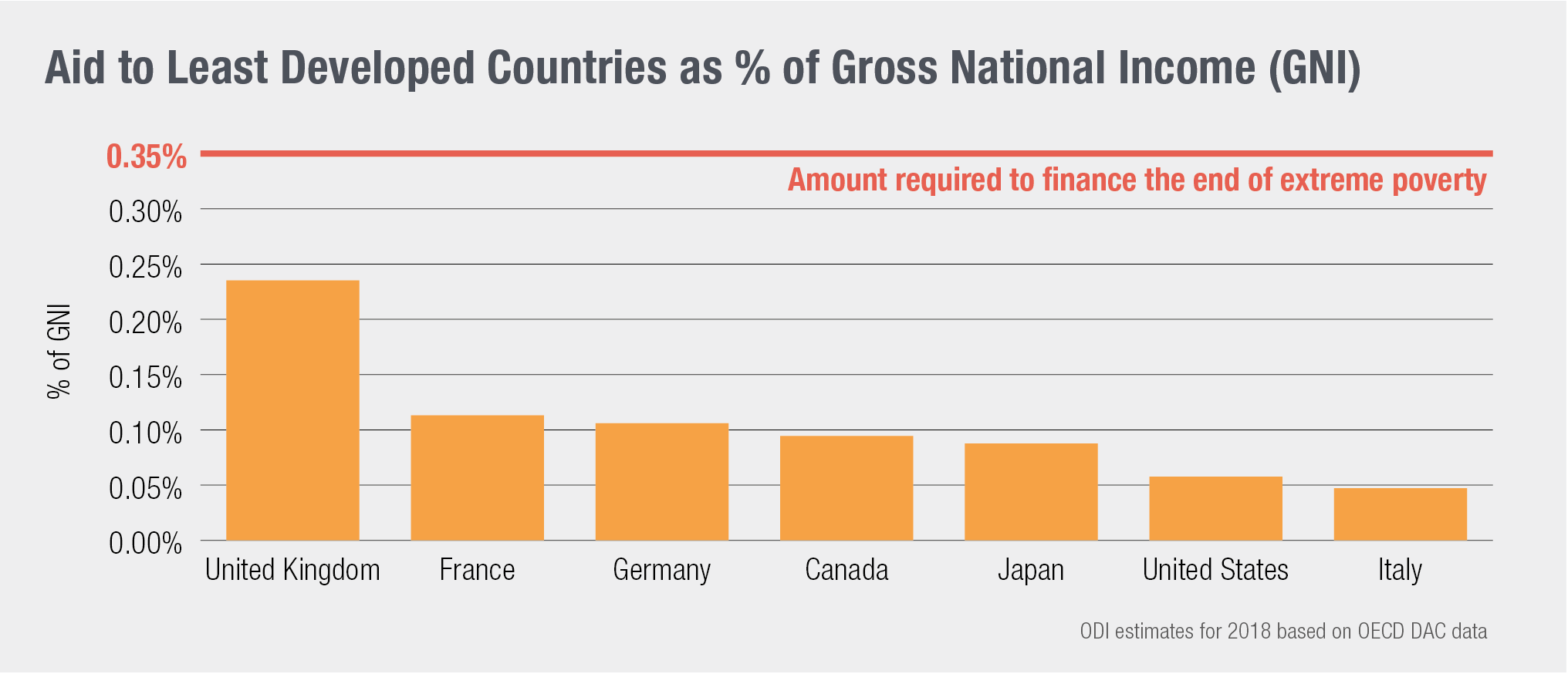There will be no shortage of issues competing for leaders’ attention at this weekend’s G7 summit: migration, climate change and trade wars, to name a few. But with the main focus being on fighting inequality, it would be shameful if the G7 don’t reflect on transforming the opportunities for the poorest people in the world.
Global inequality: a backwards trend
As the latest United Nations (UN) report in July on the 2030 Sustainable Development Goals (SDGs) showed, the world is increasingly off track to end extreme poverty by 2030. This is a stark reminder of both the scale of global inequality and that the trend is going the wrong way.
The UN Secretary-General António Guterres called in this report for “a much deeper, faster and more ambitious response…to unleash the social and economic transformation needed to achieve our 2030 goals.”
But, ODI research shows that it is possible to end extreme poverty worldwide. If every person had the opportunity to go to school and benefit from health care and social protection when needed through well-established programmes, poverty could be ended.
These programmes could include employment on public works for part of the year for those that are able to work, building community irrigation schemes and planting trees, as well as small cash payments for those that can’t work i.e. children, the elderly and those living with disabilities. The provision of such programmes is now an affordable goal for the world, but the poorest countries lack the resources to do this.
The crucial role of aid
The head of the International Monetary Fund, Christine Lagarde, noted last year that “advanced economies can do more, including by moving towards 0.7% of gross national income in aid – and can also better target their aid budgets to support countries most in need of such assistance.”
But as the chair of the OECD Development Assistance Committee, Susanna Moorehead, noted this year “less Official Development Assistance (ODA) is going to least-developed and African countries, where it is most needed”.
ODI research shows that if G7 donors increased their aid to the UN target of 0.7% of gross national income – and ensured Least Developed Countries (LDCs) received half of it – every country could afford the crucial investments needed in education, health and social protection services to end extreme poverty. The UK is currently the only G7 country that meets the UN target; now it just needs to target its aid better to ensure 0.35% of its gross national income is going to LDCs.
Are world leaders up for the task?
The G7 summit in 1999 paved the way for the next 15 years that saw extreme poverty in the world halved. This year’s summit could set the scene for whether the world can finish the task and, ultimately, end extreme poverty. There is an urgent need for the G7 to provide global political leadership. Without such a lead on the core issue of financing, the world is at risk of giving up of any chance of achieving the first Sustainable Development Goal – ending extreme poverty.

